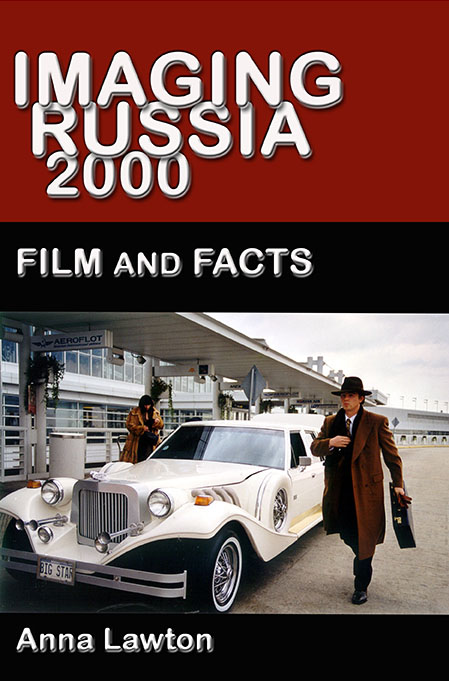This book incorporates the realities of the 1990s in Russia, focusing on film production, the films themselves, and the socio-political-cultural context. The result is an unfolding story, in which film and facts occupy the same space. The author roams through the narrative, opening fresh fields of vision, and building unexpected montage sequences. She invites the readers to follow her and engage in a challenging interactive game.
The narrative reveals a picture of Russia (with Moscow in the foreground) as the big stage on which the drama unfolded. The author discusses some eighty films made between 1990 and 2000. Many reflect the reality of the present day, either in dramatic or grotesque form. Others reassess the past, placing different spins on various epochs and figures according to the director's ideological orientation. Still others offer escapism into imaginary worlds. The films selected may vary in technical quality and depth of thought; they may be mainstream pictures, or art films. But taken together, they provide an eloquent portrait of Russia, entering the new millennium still in search of its true identity.
PURCHASE:
Amazon • B&N • Indiebound • Google Play • New Academia
Praise for Imaging Russia 2000
“Lawton’s excellent book is both a path-breaking survey of Russian cinema since the fall of the Soviet Union and a lively firsthand account of the faltering first steps of the newly democratic capitalist state.”
“Lawton’s latest book is subversive in both content and form. . . . Superbly researched and vividly written. . . .It is a ‘must read’.”
“Lawton’s book is a first-person journalistic report by a Moscow-based writer living through the decade’s many traumas. Her analyses of the movies are shaded by her personal experience of the post-Soviet situation— the failed coup of August 1991 and the parliamentary crisis of autumn 1993, as well as anecdotes about shopping and apartment hunting—yet they never strike a false note.”
“This melange of emotional diary entries, rough sketches, exhilarating first-person reportage on two coups d’état, abundant flashbacks spotlighting the country’s history, digests of the cinema press, and more, turns out to be a fine way of uncovering the identity of post-Soviet Russia.”
“This book is an engaging read and an informative resource.”
“Anna Lawton’s work on Russian cinema has always been marked by great clarity, good sense, and informative backgrounds and context. In her new book she adds imagination: on-the-ground reports from the new Russia correlated to the films emerging from, and reflecting the new society and its moods.”

